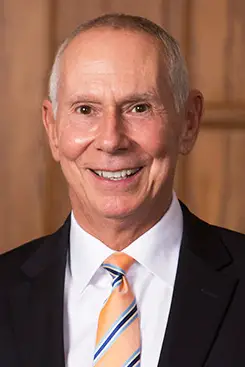Though only five years old, the state”™s Board of Regents for Higher Education, which governs the Connecticut State Colleges & Universities system, has hardly had a smooth go of it. But that looks to be changing with the board”™s unanimous vote in December to extend the contract of the state system”™s president, Mark Ojakian, through Aug. 31, 2020.
It”™s a welcome sign of stability for CSCU, which includes 17 state colleges and universities with a cumulative enrollment of about 85,000 students, after it burned through two presidents in its first three years.

The first, former University of Maine President Robert A. Kennedy, resigned after about a year on the job after it was discovered that he”™d paid more than $250,000 in raises to staff without the regents”™ board”™s approval.
His successor, Gregory Gray, former chancellor of Riverside Community College District in California, resigned at the end of 2015, two years into a three-year contract, amid complaints from faculty and legislators alike that he acted in a cavalier and autocratic manner.
“The idea that by staying here another year I”™ll be the longest-standing president is pretty surprising,” Ojakian recently told the Business Journal. Plucked in August 2015 from his position as Gov. Dannel Malloy”™s chief of staff to replace Gray on an interim basis, the 63-year-old Ojakian was given the permanent title last month at the same salary of $335,000.
“I”™m willing to travel all around and actively listen to people,” he said when asked about the regents”™ vote of confidence. “I don”™t have, and I don”™t pretend to have, all the answers, but I think I”™ve proven that I”™m willing to work with everyone to find workable solutions.”
Ojakian noted that while he”™d spent six years as senior adviser to the commissioner at the Connecticut Department of Higher Education, “I don”™t come from academia. I have a master”™s but not a doctorate.”
“But I believe I have the skill set that”™s right for this position,” he said. “I”™m a strategic person with great political skills. Working as the governor”™s chief of staff taught me how to build a consensus between Democrats and Republicans around important pieces of legislation. I”™m able to bring everybody to the table to discuss the valuable things that everyone can offer – in this case, faculty, students and administrators.”
“I”™m willing to take the tough questions,” Ojakian added. “And I”™ll always be honest with people. I never commit to something I can”™t deliver on.”
Such skills could play a significant role in the coming months as CSCU, like so many government-run entities, faces what Ojakian calls “the new economic environment in Connecticut. As we continue to look for state support, we cannot raise tuition to the point where people can no longer afford to attend our schools.”
Ojakian did back a tuition increase last spring that was approved by the Board of Regents, with a 5 percent rise at Western, Southern, Eastern and Central Connecticut state universities and a 3.5 percent increase at community colleges.
Ojakian’s creativity has been shown in a pair of programs launched this fall at Asuntuck Community College in Enfield. Students from nearby Massachusetts can attend at in-state tuition rates, while as part of a “second chance” federal program in which Asuntuck was one of four community colleges in the state chosen to participate, inmates receive instruction to “help them as they begin to transition back to society,” Ojakian said.
While CSCU”™s 11 other community colleges reported decreasing enrollment this fall, with an average decline of 4.6 percent, and its four regional universities averaged a 0.8 percent decrease, Asuntuck saw its enrollment rise by 18.5 percent.
“We can”™t continue to do business as usual,” Ojakian said. “We want to be creative when it comes to enrollment as well as retention. That”™s one of my biggest goals.”
The CSCU president also has taken pains to assure undocumented students that they will continue to be supported during a Trump presidency. “I have heard concerns from our DACA (Deferred Action for Childhood Arrivals, the Obama immigration policy that allows certain undocumented immigrants who entered the U.S. as minors to receive a renewable two-year period of deferred action from deportation) and other undocumented students,” Ojakian said in a Dec. 12 statement, “who feel particularly vulnerable and scared about what lies ahead for them and their families ”¦. I also want to reaffirm that at CSCU we are committed to social justice, to celebrating our diversity and fostering a climate of inclusion and respect for one another.”
“To be very clear, we will continue to unequivocally support our undocumented students and provide whatever legal or other services we can during this uncertain time,” Ojakian said.
“It”™s too premature to make any pronouncements” about specific measures, Ojakian told the Business Journal. “DACA students know where I stand. Once President-elect Trump actually becomes president and actually does something, then I will react to it specifically. But hiring attorneys to say you”™re a sanctuary school has no legal standing and gives a false sense of security.”
Looking ahead to the end of his term in 2020, Ojakian said, “I”™d like to have a structure in place where students can move seamlessly between two- and four-year systems. There are still a lot of people who don”™t know about what our community colleges offer. I”™ve heard that in some cases high school students are being actively discouraged from going to community colleges.”
“But these schools offer a very inexpensive, high-quality education that can either get them started towards a bachelor”™s degree or to receive an associate”™s degree. And I”™m very honored to be leading this system.”




















